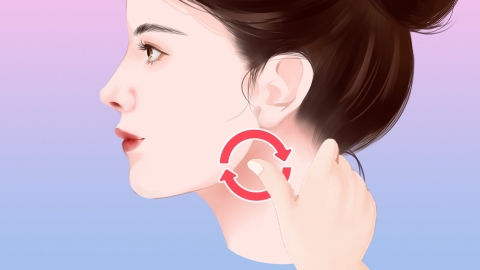How is hypothyroidism treated?
Hypothyroidism refers to the underfunction of the thyroid gland. Thyroid dysfunction may arise from aging, iodine deficiency, thyroid destruction, thyroiditis, pituitary tumors, and other factors. Treatment strategies mainly include addressing underlying causes, medication therapy, lifestyle adjustments, and dietary management. If any abnormalities occur, timely medical consultation is recommended. A detailed explanation is as follows:

1. Aging: With advancing age, thyroid function may gradually decline, which is a natural physiological process. Lifestyle modifications and dietary adjustments are primarily recommended, such as ensuring adequate sleep, avoiding excessive fatigue, properly scheduling work and rest periods, and appropriately supplementing with iodine and other essential nutrients.
2. Iodine deficiency: Iodine is a crucial element for the synthesis of thyroid hormones. Iodine deficiency can lead to insufficient production of thyroid hormones, thus causing hypothyroidism. Individuals living long-term in iodine-deficient regions are more susceptible to developing hypothyroidism. Adequate iodine supplementation should be considered, such as consuming iodine-rich foods like kelp and nori.
3. Thyroid destruction: Thyroid surgery, radioactive iodine treatment, or neck radiation therapy may impair the thyroid's ability to secrete sufficient thyroid hormones, leading to hypothyroidism. Thyroid hormone replacement therapy is generally recommended to supplement the body's required levels of thyroid hormones. In patients with thyroid malignancy, surgical removal of the lesion may be necessary in combination with other treatments.
4. Thyroiditis: Autoimmune attack on thyroid tissue damages thyroid function, eventually leading to hypothyroidism. Patients may experience symptoms including memory loss, excessive sleepiness, fatigue, bradycardia, pericardial effusion, and anemia. Symptomatic treatment under medical guidance may include medications such as methylprednisolone tablets, aspirin tablets, ibuprofen tablets, and thyroid extract tablets.
5. Pituitary tumor: The pathogenesis of pituitary tumors may be associated with multiple factors such as abnormal hormone secretion and genetic mutations. These tumors can affect pituitary function, leading to insufficient secretion of thyroid-stimulating hormone, which in turn causes hypothyroidism. Patients may exhibit various symptoms related to hypothyroidism. Treatment under medical guidance may include medications such as bromocriptine mesylate tablets, cyproheptadine hydrochloride tablets, and octreotide acetate.
Patients with hypothyroidism should maintain healthy lifestyle and dietary habits, undergo regular thyroid function examinations, follow medical instructions for timely medication, and adjust treatment plans promptly. Maintaining a positive and optimistic attitude and avoiding excessive anxiety and stress are beneficial for disease recovery.








